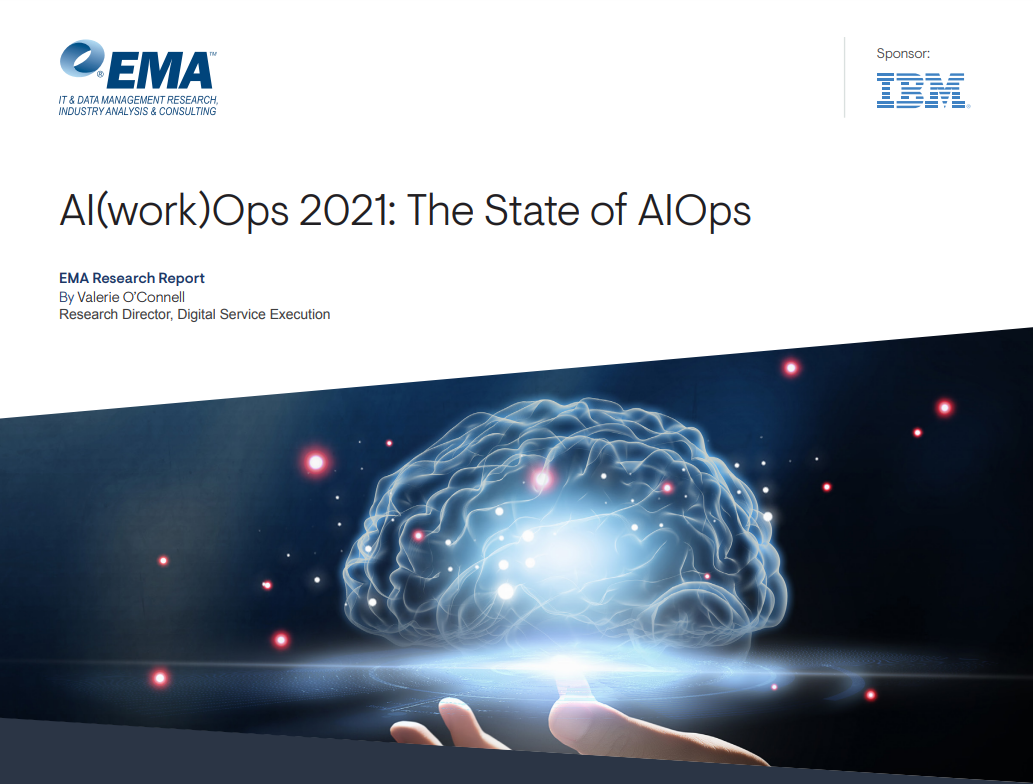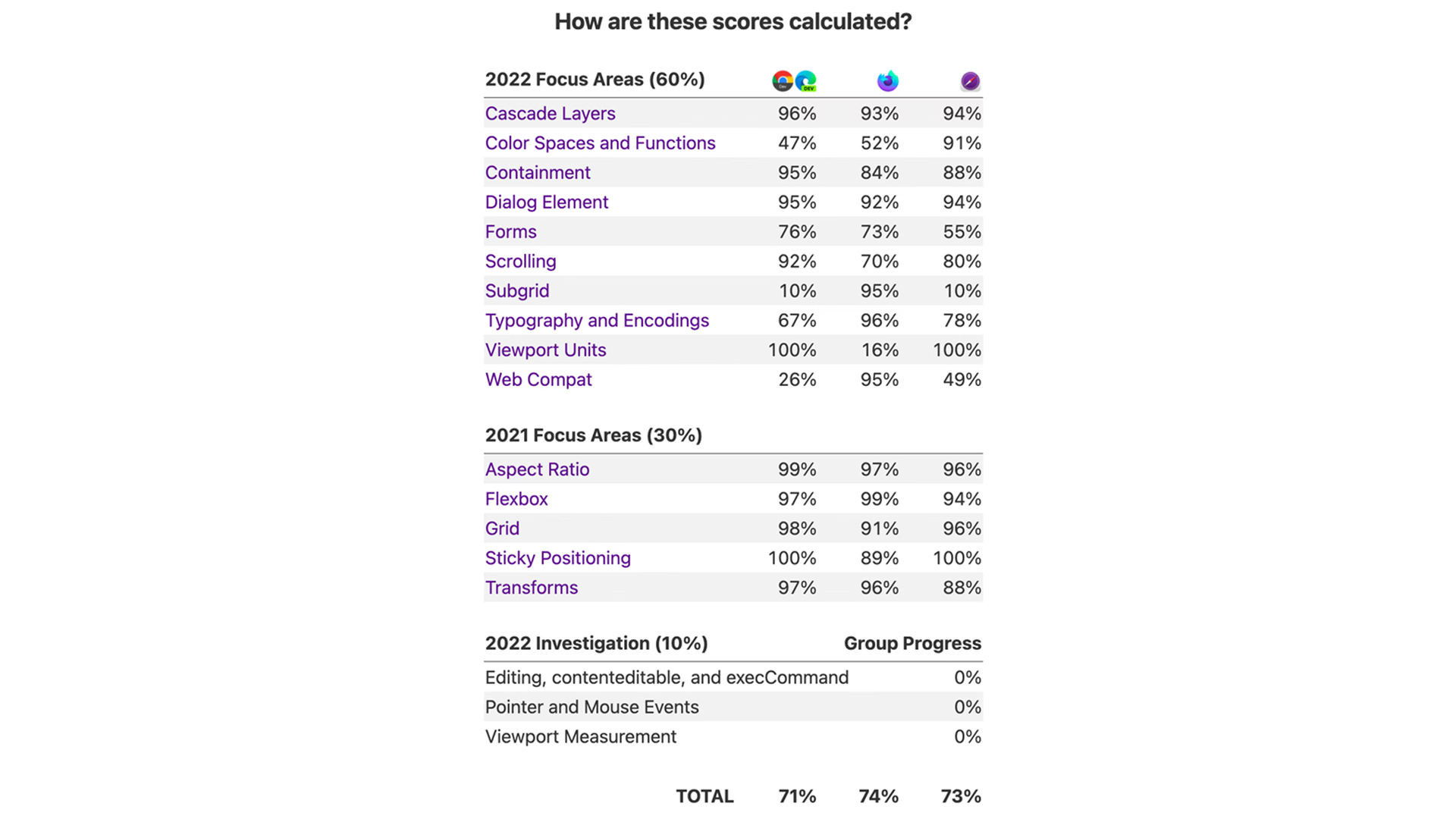All major browsers assemble for the first time to improve web development
Apple, Microsoft, Mozilla, and Google are working together to reduce the pain points developers run into when building experiences for multiple browsers


Companies behind the world’s most popular browsers have assembled for the first time to make the web more interoperable and easier to build upon for developers.
The group consists of members from Google, Microsoft, Mozilla, and Apple, as well as tech consultancies Igalia and Bocoup. The group aims to identify common interoperability issues in web standards so developers can build better experiences for the web.
Web developers have identified 15 platform specifications that are particularly troublesome when it comes to building browser experiences. These are either are not supported by some browsers or are implemented in different ways, making it difficult to build applications that work optimally across all major browsers.
The group has built the Interop 2022 benchmark, alongside a series of tests that browsers will undergo in order to determine their overall interoperability with other browsers on the market, to identify areas for improvement.
Interop 2022 builds upon last year's Compat 2021 initiative, which saw Google, Mozilla, and Microsoft work together to iron out five common pain points for web browser compatibility issues. The work culminated in December 2021, when it announced all major browsers scored above 90% compatibility on the five key pain points.
"The Interop benchmark focuses on key areas that have been identified by developers as challenging for them when developing web applications," said Joachim Herschmann, senior director analyst at Gartner to IT Pro. "It will help developers to improve the quality of their products by offering a frame of reference they can use to ensure that their applications will be compatible with the three major browser implementations.
"By taking advantage of modern AI-augmented test automation solutions, specifically those that offer visual testing capabilities driven by deep learning algorithms, they can run tests to check for any remaining inconsistent experiences across different browsers."
Sign up today and you will receive a free copy of our Future Focus 2025 report - the leading guidance on AI, cybersecurity and other IT challenges as per 700+ senior executives
RELATED RESOURCE

The new areas of focus are added in the Interop 2022 benchmark alongside the five from Compat 2021. The new areas include cascade layers, new viewport units, scrolling, and subgrid.
The group said the five areas of focus from Compat 2021 “made great progress… but there is still room for improvement”. These areas included: CSS aspect ratio, CSS flexbox, CSS grid, CSS sticky positioning, and CSS transforms.
In addition to the 15 focus areas, Interop 2022 will also introduce three “investigation efforts” - problem areas that need improvement but the current state of specifications or tests are currently good enough to be able to score progress using test results. These include editing, contneteditable and execCommand; pointer and mouse events; and viewport measurement.
Each of the 15 areas of focus can be tracked in the web-platform-tests dashboard and have had a set of tests identified to track their progress. Browsers are given scores for each area and then an overall score to easily compare the performance of each.
Google Chrome and Microsoft Edge have been bundled into the same category given they both run on Chromium, while Firefox and Safari each have their own scores.

All four browsers score roughly the same for interoperability on the key focus areas, but the scores are markedly lower compared to the Compat 2021 scores and vary wildly for each browser in each area.
Chrome, Edge, and Safari scored just 10% on the subgrid tests, for example, while Firefox scored 95%. Conversely, Chrome, Edge, and Safari scored 100% on the viewport unit tests while Firefox scored just 16%.
These scores highlight the challenges for interoperability show how far developers typically have to tailor their code so web experiences work on all platforms, even when support is limited on some but not others.
The goal of the Interop 2022 initiative is to remove these vast discrepancies in scores and make them more even, indicating a greater level of interoperability in the world's most popular browsers.
“The goal of these multi-year interoperability efforts, in the form of Compat 2021, Interop 2022 and much more, is to fully acknowledge and address the pain points developers have experienced through for many years,” said technical writer Rachel Andrew, developer advocate Robert Nyman, and software engineer Philip Jägenstedt, all of which work for Google.
“And it's not a one-browser effort but rather a strong collaboration between all major browser vendors and friends for improving the web platform across the board.
“In essence, the goal is to make the web platform more usable and reliable for developers, so that they can spend more time building great web experiences instead of working around browser inconsistencies.”

Connor Jones has been at the forefront of global cyber security news coverage for the past few years, breaking developments on major stories such as LockBit’s ransomware attack on Royal Mail International, and many others. He has also made sporadic appearances on the ITPro Podcast discussing topics from home desk setups all the way to hacking systems using prosthetic limbs. He has a master’s degree in Magazine Journalism from the University of Sheffield, and has previously written for the likes of Red Bull Esports and UNILAD tech during his career that started in 2015.


